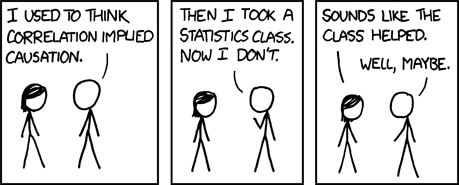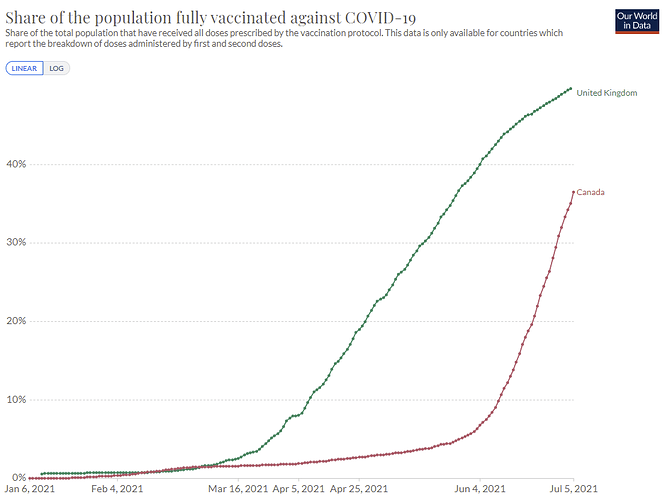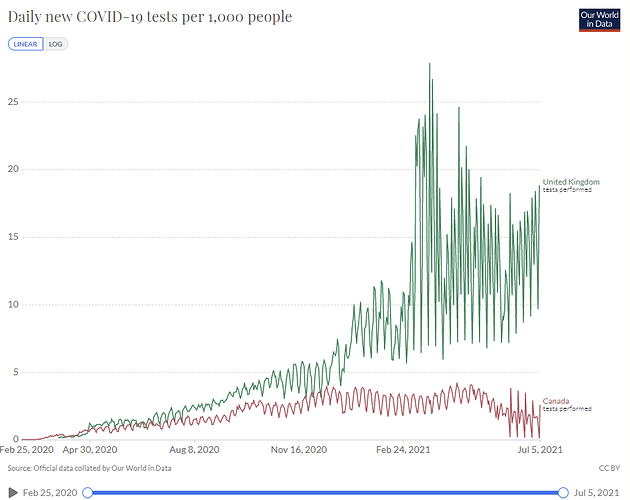Well, that’s a relief. Or, oh no that’s terrible!
Americans (Twitter users) are desperate not to trust Israeli Ministry of Health studies?
The precise reason the Israeli’s are one of the most jabbed countries on earth is becuase they were a model country for these studies and Pfizer bought into that. That’s how Israel jumped the vaccination order line.
Good work not answering the question and also assuming that everybody who tweeted about the potential shortcomings of the MoH stats are Americans. Classic you.
Twitter user Uri Shalit seems to work for the Israel Institute of Technology, so I’m guessing that’s not it.

You truly truly suck in this thread.

Thought so :)
11 EU member states have more partially vaccinated people than America. Two are likely to pass America in the next week (Ireland and Austria).
America’s obviously well ahead most of them in fully vaccinated people but those countries having more partially vaccinated people shows a greater willingness to get vaccinated there.
If I understand correctly:
- Normally you’d want to assess efficacy via a randomized trial, so that if you observe differential outcomes between two groups (i.e., the vaccinated group and the placebo group), you could confidently say that any difference would reflect the vaccination’s efficacy.
- This Israeli study is not based on a randomized trial. Instead, it’s based on [some observed group that I don’t know enough to describe]. The key here is that this is non-random, so it’s important to statistically control for differences between those groups, because those differences are not random and (if unaccounted for) would bias the results. There are two aspects to this statistical approach: the functional form of the regression and the variables that you choose to control for. Here, negative binomial is just a type of regression (just like ordinary least squares is a different type of regression). They’re apparently controlling for only week and age in that regression.
Here’s one way this type of study could be done, and why it might lead to a problem:
Suppose you test everyone that comes into a hospital for COVID, and you ask whether they’re vaccinated. In a simple world, you’d just compare the positivity rate for vaccinated vs. unvaccinated admissions:
(# of unvaccinated positive COVID tests)/(# of unvaccinated admissions)
compared to
(# of vaccinated positive COVID tests)/(# of vaccinated admissions)
But suppose that you have immunocompromised individuals, for whom the vaccine is not nearly as effective. Further, suppose that these individuals are generally more likely than the average person to be admitted to a hospital. What you’d end up with is an oversampling of this group in both the vaccinated and unvaccinated groups. (Maybe the immunocompromised individuals make up 3% of the overall population, but 20% of hospital admissions.) And because, among this oversampled group, vaccination efficacy is lower, this type of study is going to imply that vaccine efficacy among the entire sample is lower than it actually is, unless you explicitly control for that factor in the statistical analysis.
To be clear, I have no idea what population they actually used in the study or how they controlled for things. But it’s very easy for me to imagine how this kind of observational study (vs. randomized trial) would yield biased results.
I feel like the biggest unknown in all this, one I’ve never heard answered - is what does an asymptomatic positive test really mean? Does it mean the person can spread it?
It seems like we’ve had tons of weird results where people test positive months after the infection, but it gets explained away as residual virus or something. There seem to be a lot of cases where people test positive that it’s unclear if they even have an infection they can spread.
So what I’m getting at is vaccine efficacy is going to be a gigantic function of testing prevalence. I guess you have the original clinical trial participants, who were all constantly tested, as reference. But delta even seems to have different symptoms - not nearly as much losing taste and smell. So maybe its profile is completely different.
The only metric that I totally trust are hospitalizations and deaths. As far as I know Israel isn’t seeing a massive drop in vaccine efficacy with those? Or is the sample size too small?
So, it’s fair to assume neither does Suzza’s Tweeter that added so much value to the thread.
On the other hand, we do know that Pfizer probably approved the study and subsequent press release, given Israel joined the line late and got a discounted rate, on the understanding they’d only use Pfizer and report all studies to Pfizer.
I’m going with the Israeli MoH on this one, can’t be doing with the conspiraracy theorists.
N.B. I’m not dissing the vaccines. I do believe variants affect the efficacy of mid to late 2020 designed vaccines though
Yeah, Pfizer not doubt learned first of the reported drop in efficacy to their largest project in xxx years, via a Reuters press release ![]()
Dan will be sad he’s not a epidemiologist.
I’m not sure these words mean what you think they mean.
Yeah but probably not as effectively.
No, it’s not fair to assume that about the tweeter. I don’t know anything about the study because the press release is in Hebrew, and I don’t speak Hebrew. But other people do!
Those countries hate freedom.
eah, Pfizer not doubt learned first of the reported d
Maybe definitely probably!
I’m living in a place (Ontario) with well less than 1/10th the cases per capita as the UK with similar vaccination rates and indoor dining is not allowed, masks are required everywhere indoors/public transport/ride sharing. Barber shops just opened at the end of last week, patios need to have every other table empty, shopping malls are still closed and I think most outside entrance retail stores are 25% of capacity. i would say relatively the UK has gone 99% full reopening/ dropped pretty much all safety measures.
The bloomberg vaccine tracker calculates the number of months to get to 75% coverage at the current vaccination rate, and the USA is plummeting down the list. The goal line keeps getting farther away as we slow our rate down, while other countries are speeding up and will surpass us soon.
It’s beyond normal hesitancy or vaccine skepticism, which exist everywhere, or even the historical mistreatment of marginalized groups, which is admittedly bad in the USA. The right wing weaponized COVID skepticism, and that bled over into the attitude about the vaccine. The fact that we’re still in the hundreds of deaths per day is almost entirely their fault, when vaccines have been available for vulnerable populations for at least 90 days now.
I’m worrying right now that I was wrong in my prediction that once we drop under 20,000 cases/day (7DMA), we’ll never go back above that number.



